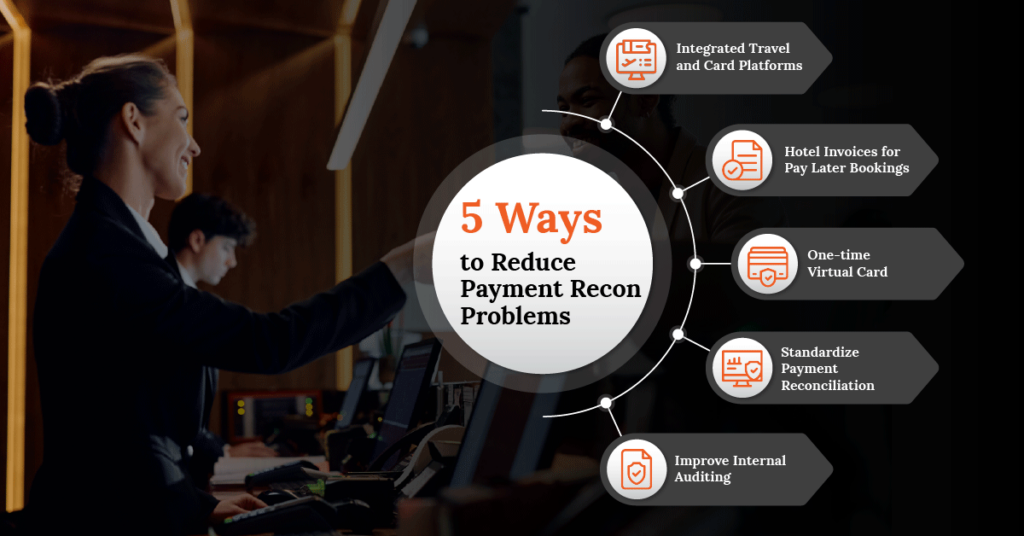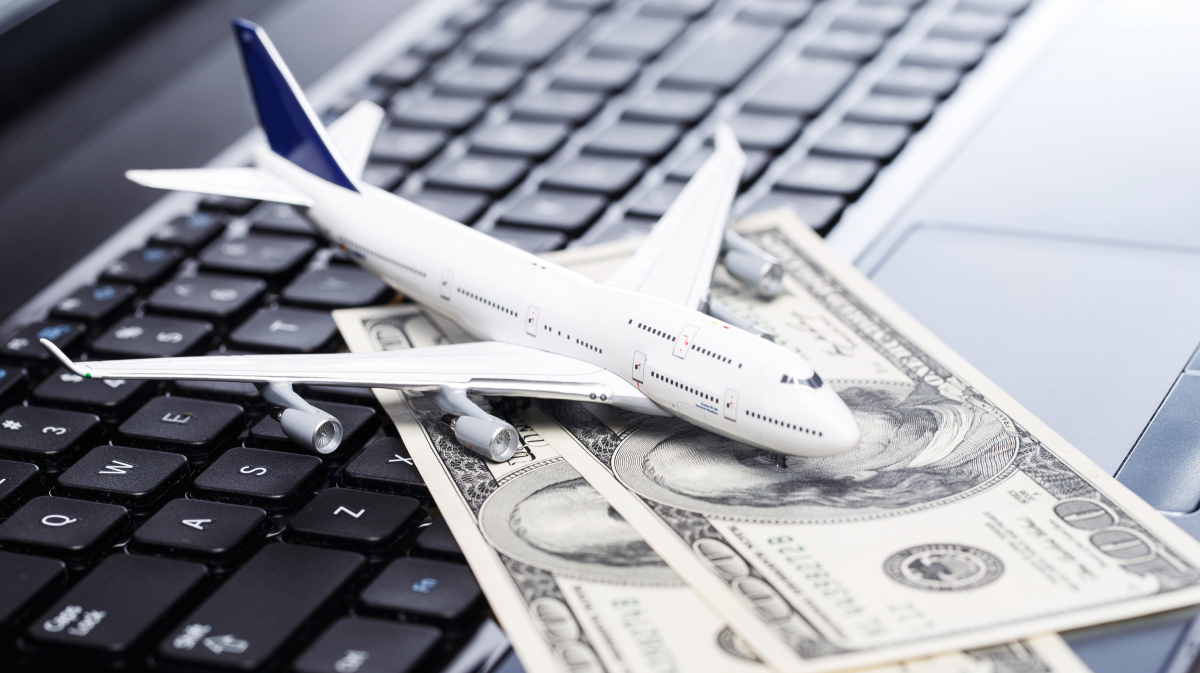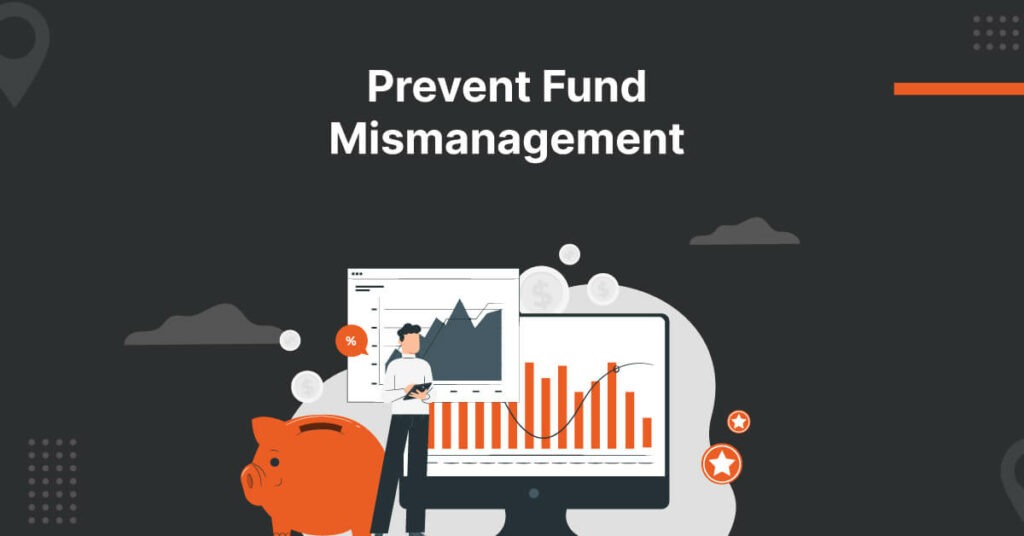
Ever since the COVID-19 pandemic, the hospitality industry has been booming. Both leisure and business travel began in full swing with travelers traveling continuously across the globe. To put it simply, travel is on the rise globally. And during such times, hotels across the globe have to manage tons of bookings every day. However, one major problem arises-hotel payment reconciliation. According to the latest research, manual payments and reconciliation cost the travel industry around $1.5 billion annually.
Hence, one of the key challenges hoteliers face is managing the payment reconciliation process. Managing reconciliation takes up much time for hotel owners or finance managers. With many daily transactions, keeping track of all the payments is quite challenging.
Moreover, discrepancies can arise from various sources. These can include incorrect billing, timing differences, and communication breakdowns. These can lead to significant financial discrepancies and operational inefficiencies. A report by the Association of Certified Fraud Examiners (ACFE), many businesses lose around 5% of their annual revenue to fraud. A significant amount of money is involved in financial reporting irregularities. This is exactly where payment reconciliation plays an important role.
In this blog, we will examine 5 ways to solve reconciliation problems at hotels. These will help you solve all reconciliation problems, enhance accuracy, and reduce errors.
What is Hotel Payment Reconciliation?
Before we delve into the methods of payment reconciliation, let us first try to understand what it is. Hotel payment reconciliation verifies that all financial transactions between a hotel and its clients are accurately recorded and accounted for.
This process ensures that the payments received match the services provided, reducing discrepancies and financial errors. It involves comparing internal records, such as invoices and payment receipts, against external records, like bank statements and transaction reports.
Effective reconciliation helps identify and resolve discrepancies, prevent revenue leakage, and maintain financial integrity. With the rise of online bookings and multiple payment channels, the hotel payment reconciliation process has become increasingly complex, necessitating advanced software tools and meticulous auditing practices.
Accurate payment reconciliation is crucial for maintaining a hotel’s profitability and operational efficiency and fostering trust and transparency with clients and partners.
Suggested Read:
5 Hotel Payment Processing Challenges in Business Travel
How Does the Payment Reconciliation Process Work?
The payment reconciliation process involves several steps to record all transactions accurately. Some of the key steps in the reconciliation process include:
1. Collection of Financial Data
You must first collect all the relevant financial data and records. This includes all your bank statements, payment receipts, invoices, and transaction reports. This data is very crucial for verifying all kinds of transactions.
2. Data Entry and Organization
As a hotelier, you must enter and organize all financial data in an organized and systematic way. You should categorize transactions and track payment dates and amounts. You must also track other important details to facilitate easy comparison.
3. Matching Transactions
Make sure to compare your internal financial records with external statements. Check that transaction amounts, dates, and descriptions match in all records.
4. Identifying Discrepancies
You must identify the reasons for any discrepancies found during the matching process. Discrepancies can result from mistakes during data entry, timing differences, or unauthorized transactions.
5. Resolution of Discrepancies
Resolve discrepancies by making necessary adjustments to the records. You should correct errors or adjust the accounts to reflect the correct amounts.
6. Reconciliation Reports
Generate payment reconciliation reports during the reconciliation process. These reports provide a clear overview of the financial status. It also helps maintain accurate records for auditing purposes.
7. Review and Approval
Have the right personnel review and approve the reconciliation reports. This ensures accuracy and compliance with internal controls and accounting standards.
5 Methods to Solve Hotel Payment Reconciliation Problems
There are multiple ways in which you can solve the hotel payment reconciliation. Listed below are 5 ways:

1. Use Integrated Travel and Card Platforms
Hotels can solve payment reconciliation issues by using advanced travel and card platforms. These platforms help centralize data management and automate transaction matching. They gather all transaction data into one system, making reconciliation easier by giving a complete view of everything. Real-time reporting and alert functionalities enable hotels to address discrepancies quickly. Detailed audit trails improve transparency and effectively trace the root causes of issues.
Additionally, these platforms improve compliance and security by handling sensitive financial information securely. This is done by maintaining high industry standards. Customized reconciliation reports provide detailed insights into payment activities. By using these advanced travel and card platforms, hotels can improve efficiency. It also minimizes errors and makes it easier to track and manage. They also ensure accurate and timely reconciliation.
2. Collect Hotel Invoices for Pay Later Bookings
Most hotels struggle to collect invoices for pay-later bookings. However, using efficient strategies can streamline this process. One effective approach is implementing automated invoicing systems that integrate with booking platforms. These systems automatically generate and send invoices when bookings are confirmed.
Adding digital payment options helps prompt settlement. This reduces outstanding balances and improves cash flow. Centralized billing platforms let hotels manage all invoices in one place, simplifying tracking and reconciliation. Automated reminders and notifications ensure invoices are promptly reviewed and paid on time. By adopting these strategies, hotels can better manage pay-later bookings.
3. One-time Virtual Card for Every Unique Booking
Hotels can effectively manage unique payments using one-time virtual cards. They offer enhanced security and flexibility. These virtual corporate cards are generated for specific transactions. Thus, provides a secure payment method that minimizes fraud and unauthorized charges. Hotels can streamline individual bookings with one-time virtual cards. This ensures seamless transactions without traditional credit card processing.
Additionally, these virtual cards simplify reconciliation with clear transaction records for each payment. Hotels can easily track and verify payments, reducing the need for manual reconciliation. Spending limits and expiration dates enhance security. They also ensure compliance with financial policies.
4. Standardize the Payment Reconciliation Process
Standardizing the payment reconciliation process across the hotel ensures consistency and accuracy. This involves developing and implementing standardized procedures, guidelines, and templates for reconciliation. Standardization reduces variability in the process. Thus, making it easier to identify and address discrepancies.
Hotels should train staff on standardized reconciliation procedures. This ensures that everyone involved in the process follows the same practices. Regular audits and reviews of the reconciliation process help identify areas for improvement. They also ensure that the standards are followed regularly.
5. Improve Internal Controls and Auditing
Hotels to enhance payment reconciliation through robust internal controls and rigorous auditing procedures to ensure accuracy. These measures reduce errors and fraud, ensuring accurate financial records. Key steps include setting up checks and balances, dividing responsibilities, and conducting routine audits to oversee reconciliation.
Internal audits are crucial for finding mistakes and suggesting improvements in reconciliation procedures. Regular audits help hotels keep accurate records and quickly solve problems.
Suggested Read:
Streamlining Hotel Payments Using Virtual Cards in Corporate Travel
Make Hotel Payment Reconciliation Process Hassle-free
Payment reconciliation is crucial for the accuracy and integrity of hotel financial records. Leveraging effective solutions minimizes reconciliation in hotels. The above solutions help reduce errors and discrepancies. This enables hotels to optimize their financial management.
itilite is a modern corporate travel management solution that simplifies business travel for employees and companies. With our state-of-the-art features, you can ensure every process is well taken care of. Our one-time virtual card can be beneficial for every hotel booking. We also ensure that no fraudulent expenses are made, thus safeguarding all transactions. Moreover, we provide round-the-clock travel support in case of any emergency.
To know more about itilite, get in touch with us now.















 and then
and then